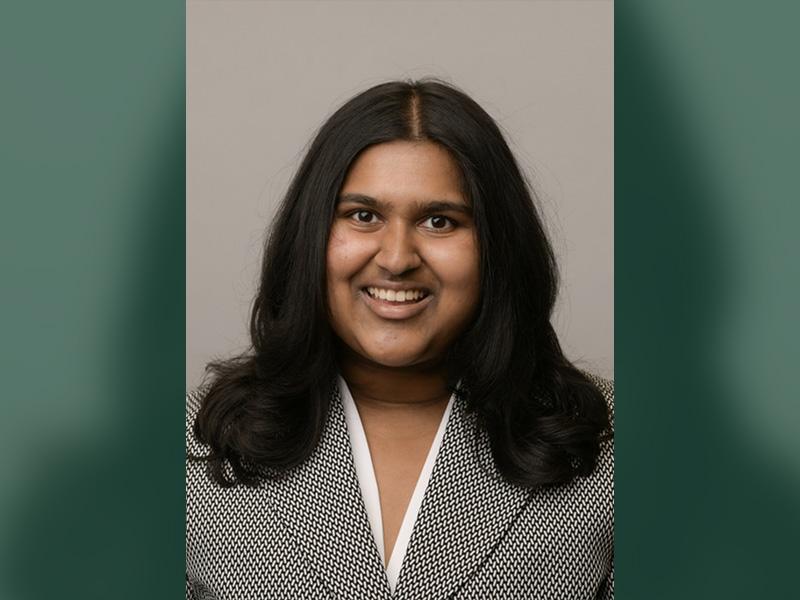Tulane Law Student Wins $10,000 Scholarship in AI-Focused Writing Competition
Tulane Law 3L Navya Kolli has earned first place in the Karl Popper Legal Reasoning Scholarship, receiving a $10,000 award for her winning entry in an AI-focused legal writing competition.
The global competition challenged law students to imagine the future of legal reasoning in a world where artificial intelligence has become part of the constitutional order. Entrants were asked to step into the year 2047, where AI copilots, climate displacement, and algorithmic truth-verification define the legal landscape. Their task: to draft a judicial opinion or brief in a refugee case that tests the boundaries between human judgment and machine reasoning.
Kolli’s submission stood out from over sixty entries worldwide, earning her Gold in the competition and a $10,000 scholarship prize. She took the top prize, surpassing submissions from students at Georgetown, Stanford, Sciences Po, and other leading institutions.
“My concurring opinion to In re Hakim Family asked whether faith-based reasoning can coexist with algorithmic systems of truth,” Kolli said. “I argued that law should recognize multiple ways of knowing by creating procedural accommodations rather than demanding epistemic conformity. In other words, justice depends not on perfect consensus, but on an open translation between worldviews.”
Kolli credits her Tulane Law cohort and professors for introducing her to the competition and giving her the tools needed to excel.
“I learned about the competition through a message sent out to the Tulane Tech & IP Society,” she said. “My concurring opinion drew on foundational concepts I learned in IP Theory Seminar with Professor (Brian) Frye, so it means a lot to know I have been able to grow from that class and use what I learned to ask bigger questions about the future of AI in governance and the legal field while still centering human understanding.”
Frye is a leading voice in intellectual property and art law. His scholarship explores the intersections of creativity, ownership, and the structures that shape artistic work. He has published more than 100 academic articles, gaining recognition for his work on plagiarism, blockchain, and legal history.
Kolli’s recognition underscores Tulane Law’s growing emphasis on interdisciplinary and forward-looking legal education, where students are encouraged to grapple with the ethical and practical challenges posed by emerging technologies.

